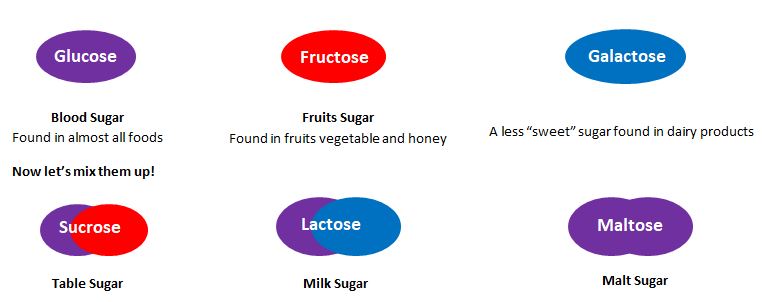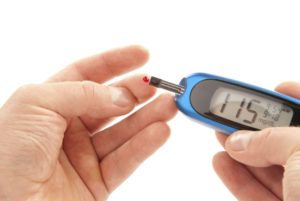How often can you resist a warm doughnut, a French Vanilla, or a hot waffle topped with chocolate, it is quite hard to do that right? Well don’t worry, you are not alone, millions of people feel the same, it is our biochemical side of the body, let’s go quickly over this subject see what are the different types of Sugar, where are they found, why do we need them and when should we say: Thank you sugar, that’s enough!
What is Sugar?
Or should we say what are sugars, sugars are from the carbohydrates family, so basically they are considered as sources of energy, they are divided into 3 groups based on the complexity of their chemical structure; Monosaccharides are the most basic forms of sugar, when up to 10 Monosaccharides bind together, they are named Oligosaccharide (Oligo means “few”), and then we have polysaccharides that are a combination of more than 10 Monosaccharides, Below are the most common sugars:

Why do we need sugar?
Sugar is needed as it is considered an energy source for our body; in fact, all carbohydrates break down due to metabolism into small molecular sugars. In other cases, a mix of sugar and salt with water is considered as an elementary dehydration treatment or what is known as “Oral Rehydration Treatment” ORT.
How much sugar is recommended per day?
According to the world health organization, there are two recommendation for sugars intake for, a strong recommendation that says that one should consume 10% only of the total energy intake in the form of sugars. And a conditional recommendation (which is the most common) is to even drop it down to 5%, so assuming the average calories an adult would consume daily is 2000 Calories, then 200 of them (50 g) with an optimal case of 100 cals. (25 g) is to be sugar.
What does 25g of Sugar in real life look like?

Why should we consume Sugars more consciously?
It is known to everybody that Sugar consumption is related to dental caries over the years and that is what the World health organization or the WHO alerts for, but what is considered to be potentially riskier is this:

That is it for now about sugar, don’t overdo it but also don’t eliminate it, it is always good to keep the balance.
Stay Positive, Stay healthy, Stay grateful!




